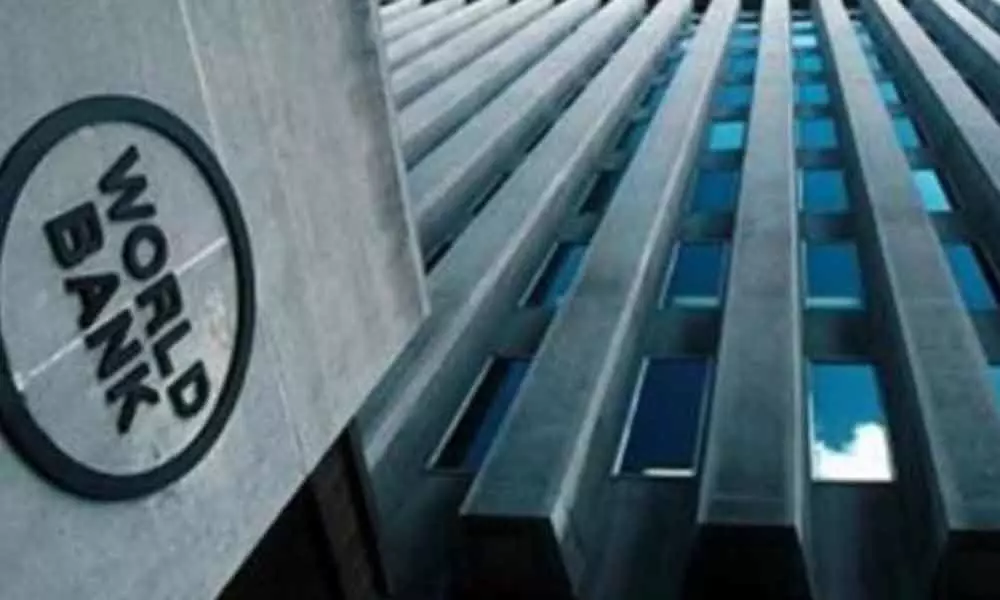Growth to lose pace in 2019-20: World Bank

Projected to be 5% amid enduring financial sector issues; likely to recover to 5.8% in 2020-21
Washington: India's growth rate is projected to decelerate to five percent in 2019-20 amid enduring financial sector issues, according to a World Bank report, which said the country's GDP was likely to recover to 5.8 percent in the following financial year.
India's GDP growth is seen dipping to an 11-year low of 5 percent in the current fiscal, mainly due to poor showing by manufacturing and construction sectors, government data showed on Tuesday.
"In India, where weakness in credit from non-bank financial companies is expected to linger, growth is projected to slow to five percent in fiscal year 2019/20, which ends March 31 and recover to 5.8 percent the following fiscal year," the Bank said in its latest edition of the Global Economic Prospects on Wednesday.
The Bank said the regional growth in South Asia is expected to pick up gradually, to six percent in 2022, on the assumption of a modest rebound in domestic demand. "Growth in India is projected to decelerate to five percent in FY (financial year) 2019/20 amid enduring financial sector issues," the WB report said.
It said key risks to the outlook include a sharper-than-expected slowdown in major economies, a re-escalation of regional geopolitical tensions, and a setback in reforms to address impaired balance sheets in the financial and corporate sectors.
In India, economic activity slowed substantially in 2019, with the deceleration most pronounced in the manufacturing and agriculture sectors, whereas government-related services sub-sectors received significant support from public spending, the Bank said.
GDP growth decelerated to five percent and 4.5 percent in the April-June and July-September quarters of 2019, respectively, the lowest readings since 2013, it said. Sharp slowdowns in household consumption and investment onset, the rise in government spending. High-frequency data suggest that activity continued to be weak for the rest of 2019, the Bank said.
The Bank, in the report, praised India's efforts to gradually eliminate subsidies on LPG. In India, starting in 2012, the government reformed its subsidy regime for liquified petroleum gas (LPG). LPG subsidies to households encouraged the formation of black markets where subsidised LPG distributed to households was diverted to the commercial sector. The government gradually increased the price of LPG for households while implementing a large-scale targeted cash transfer mechanism, it said.
"The programme successfully eliminated distortions in the LPG market, with limited adverse consequences for the poor, and the fiscal savings obtained from the reduction in subsidies fully offset the costs of the targeted cash transfer," the report stated.
In its report, the Bank said the global economic growth is forecast to edge up to 2.5 percent in 2020 as investment and trade gradually recover from last year's significant weakness but downward risks persist.

